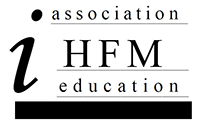Type of Submission
AHFME Symposium Abstract
Abstract
Very few academic studies have systematically attempted to evaluate equity valuation models in the lodging industry. Most academic papers in the mainstream finance and accounting literature either exclude hospitality firms or do not examine them in detail. For example, it is very common to find academic papers that exclude all service sector firms. The lodging sector has many characteristics that differentiate it from other economic sectors in the U.S. For example, lodging is very capital intensive, however, the performance is heavily dependent upon the quality of the service interaction with the customers. Therefore, we cannot directly conclude that the results of research that has excluded lodging firms can be extended to lodging firms. Two of the main generic models used in academic research are the discounted free cash flow valuation model and the abnormal earnings valuation model. Many researchers have used these models to generate valuation for publicly traded firms, for example, Francis, Olsson, and Oswald (2000) and Penman and Sougiannis (1998). The Francis et al. paper attempts to compare the relative accuracy, consistency, and explainability of three kinds of models. However, Lundholm and O'Keefe (2001) show that, if properly implemented, all valuation models should get similar estimates of equity value. Other papers support their conclusions. The main purpose of this paper is to explore the major equity valuation models developed in the mainstream accounting and finance literature, operationalize them for the lodging industry, systematically examine and operationalize the assumptions needed for each model, and finally examine the forecasting ability of these models on lodging firms. The study selects two widely used equity valuation models, the discounted free cash flow and abnormal earnings models.
Recommended Citation
Upneja, Arun and Lee, Seoki
(2004)
"An Analysis of the Major Equity Valuation Models as Applied to the Lodging Industry,"
Journal of Hospitality Financial Management: Vol. 12:
Iss.
1, Article 14.
Available at:
https://scholarworks.umass.edu/jhfm/vol12/iss1/14
